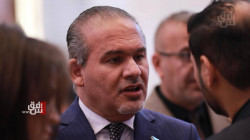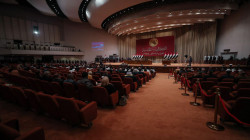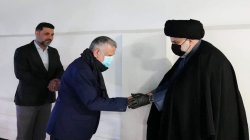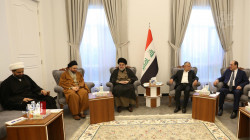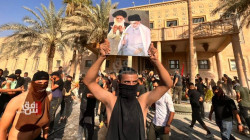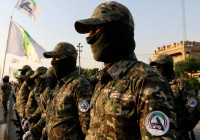Would Al-Sadr be a part of the authority or opposition?
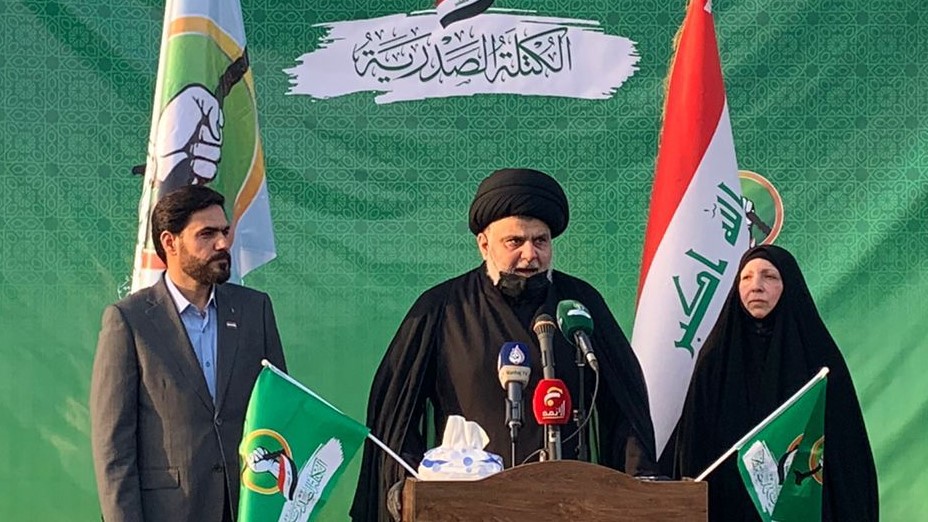
Shafaq News/ The Sadrist movement revealed details of the forty days given to the Shiite Framework to form the government granted by Muqtada al-Sadr.
A member of the Sadrist, Safaa al-Asadi, told Shafaq News Agency that "if the Framework fails to form a consensus government, the Sadrist will proceed with its project to form a government of the national majority."
He pointed out that "when Al-Sadr met the Framework's leaders at the house of the leader of the Al-Fateh Alliance, Hadi Al-Amiri, he presented to them his project in forming a government of the national majority,… whoever wants, participate in this government, and whoever refuses goes to the opposition."
According to al-Asadi, Al-Sadr also said he might enjoy the opposition if the Framework refused to form a majority government. Still, all the framework forces rejected this suggestion.
About the tripartite alliance (Al-Sadr, Al-Siyada, and the Kurdistan Democratic Party), Al-Asadi said that "it is still a stable alliance; however, Al-Sadr gave the partners the green light about their participation in forming the government with the Framework or not.
“Suppose the Framework succeeds in achieving a majority. In that case, the Sadrist bloc will be the first to attend the parliament session to secure the quorum for naming the President of the Republic. Otherwise, the Sadrist bloc will proceed to form the government." Al-Asadi said.
In turn, the former representative of the Kurdistan Democratic Party, Abdul Salam al-Barwari, confirmed to our Agency that he "considers that al-Sadr's proposal is a challenge to the Framework."
He said, "al-Sadr is defying the Framework as if he is telling them to go ahead and form a government instead of disrupting political work."
"The proposal revealed that the tripartite alliance is firm because the Sadrist movement presented a vision and KDP and Al-Siyada are convinced in Al-Sadr's government program."
Earlier, a source in the Shiite Coordination Framework revealed a new initiative to form the government.
The source told Shafaq News Agency that "the extended majority" initiative includes choosing a "consensual" prime minister representing the largest bloc in the parliament and approved by the Framework and the Sadrist.
The initiative also said that both sides would have a prominent role in promoting a convergence of views among the Kurdish parties to choose the next Iraqi President.
The source added that "the Framework would not participate in the executive authority, taking into account its opinion in naming the 12 Shiite ministers who would be belonged to the Sadrist movement."
The Framework also suggests heading with ally the 12 parliamentary committees as part of its role in the role of the opposition.
Earlier, al-Sadr, announced the withdrawal of the Sadrist bloc from negotiations to elect the President of the republic and form the next government, allowing the Shiite Coordination Framework to negotiate with the other political forces in this regard.
Al-Sadr said on Twitter that he thanks God "for winning the largest bloc, forming the largest alliance (Saving the Homeland), and nominating a prime minister acceptable to all."
"For Iraq not to remain without a government which will deteriorate the security, economic, and service conditions, I am giving (the third: the Framework) an opportunity to negotiate with all the blocs to form a national majority government, without the Sadrist bloc, in a period from the first day of Ramadan until the ninth of Shawwal (40 days)." He added.
Al-Sadr addressed the Sadrist representatives not to interfere with this issue "neither positively nor negatively."
After Al-Sadr's statement, the State of Law Coalition said that its leader, Nuri al-Maliki, one of the main poles of the Coordination Framework, would hold talks with other political forces to pave the way for the formation of the next government.
The representative of the State of Law, Thaer Mukheef, told Shafaq News Agency, "The leader of the Sadrist movement has set 40 days for the Framework to form the government with the agreement with other parties."
He added, "There's a high probability that this process will change the political map, and I think that the Kurds may agree on one candidate for the presidency."
"We seek not to exclude anyone, and we hope that Al-Sadr would participate in the government, and we will seek to communicate with him about this."
Iraqi lawmakers failed for a third time on Wednesday to elect a head of state, further deepening a political crisis spurred by infighting following general elections five months ago.
So far, Iraqi politicians have disagreed on a compromise candidate for the presidency, exacerbating a political vacuum that prevents the appointment of a prime minister.
A lack of a quorum, set by the Federal Supreme Court at two-thirds of the house's 329 members, held the vote for the third time since February.
The parliament presidium opted to convert the session to an ordinary session to discuss the lineups of the permanent parliamentary committees.
In a brief statement, the media bureau of the Iraqi parliament said that the parliament speaker, Mohammad al-Halboosi, inaugurated the sixth ordinary session without revealing the number of lawmakers who attended the session.
A source said that only 152 lawmakers showed up for the latest vote, and the vote for a new president was delisted from the session's agenda.
